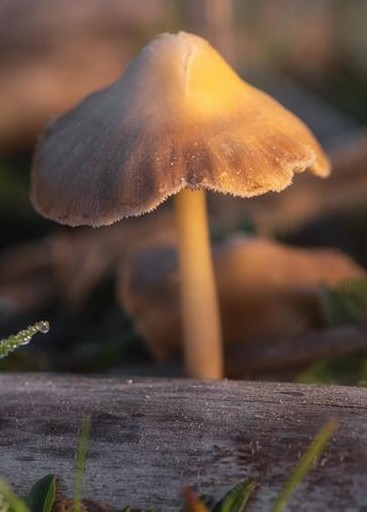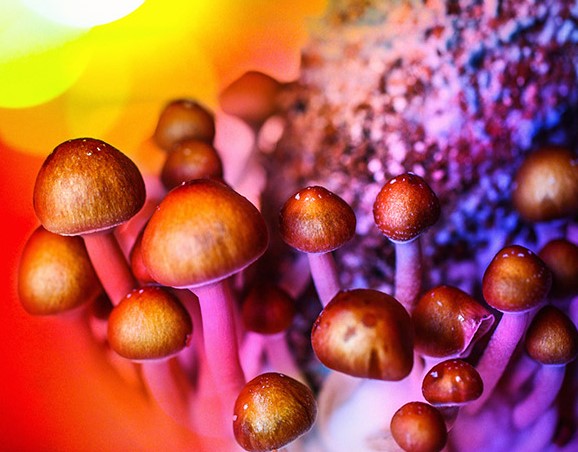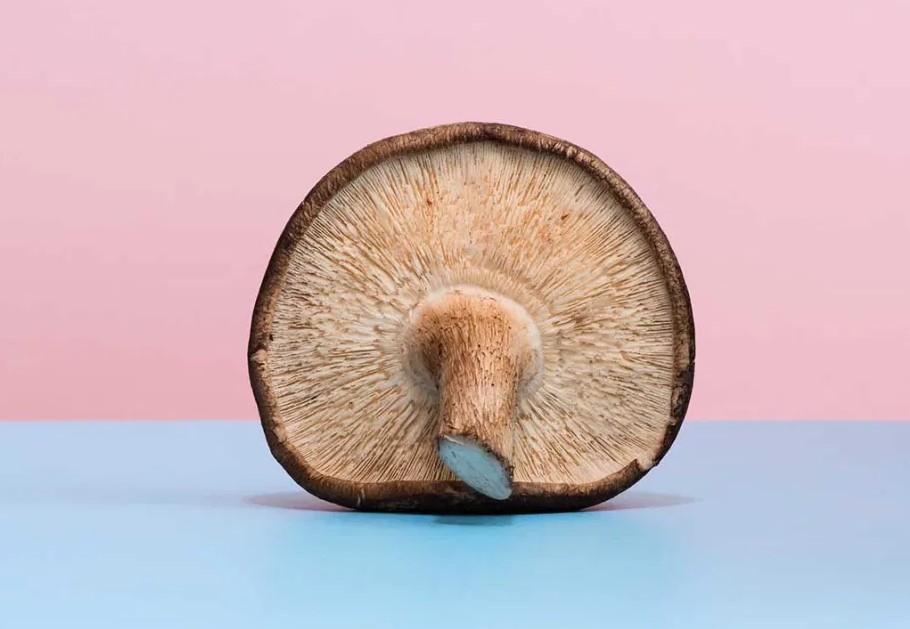Mushrooms have been used by people for their nutritional and healing properties for thousands of years. Their usage was widespread in Eastern Russia, China, Korea, and Japan up until recently. However, more individuals in the West are becoming aware of their advantages these days.

According to some estimates, as many as 700 different types of fungus have medicinal qualities. Their capacity to boost immune function is one of the best-studied features of these.
Mushrooms have long been used in traditional medicine to help boost the immune system. This post explores how mushrooms aid the immune system and the highest varieties available. Continue reading for our comprehensive guide.
Mushrooms and Immune Defense
To fully grasp mushroom immune support, you must first have a basic understanding of how immunity works.
The immune system is a highly complicated mechanism that integrates several types of cells with distinct responsibilities. However, it may be divided into two categories: innate immunity and adaptive immunity.
The portion of the immune system that is inborn is known as innate immunity. It allows our bodies to identify foreign particles, such as bacteria, viruses, and fungus, which activates our natural defenses.
The body’s response to an injury includes the release of pro-inflammatory cytokines, which are chemicals that cause inflammation. These are proteins that function as messengers, alerting the system to a possible hazard, prompting an inflammatory reaction.
Inflammation has been well-known for a long time. Inflammation is the body’s response to harm, which is why injured regions might become hot, red, or puffy as a result of increased blood flow transporting immune cells, including white blood cells, to the site to eliminate the danger.
If the foreign invader slips past the body’s initial defense or the body needs a more sophisticated attack, the adaptive immunity takes shape.
Our adaptive immunity utilizes T-cells and B-cells, serving as a line of defense that uses past behaviors and interactions to learn and recognize specific foreign invaders and attack them when they reappear. This process illustrates how vaccines work – using a small, harmless amount of protein from a disease that allows the adaptive immune system to recognize that protein if the individual comes in contact with the specified virus.
So, how do mushrooms fit into the picture?
Most medicinal fungi are rich in compounds called polysaccharides. These are large molecules composed of several carbohydrates bound together.
Want Better Focus, Clarity & Energy?
Get Lion’s Mane Mushroom Capsules Free!
Our favourite mushroom supplement brand is offering you a free bottle for a limited time
EDITOR’S CHOICE – VIDACAP
VidaCap offers top-quality functional mushrooms and mushroom supplements that are not only organic, grain-free, and gluten-free but are also supremely affordable. Supplying formulations made from mushrooms expertly grown in enclosed greenhouses, their most popular products include the Lion’s Mane and Reishi selections.
Mushrooms’ Immune System Benefits
Polysaccharides make up approximately 80% of mushroom cell walls. Around half of these polysaccharides are beta-glucans, which may enhance both innate and adaptive immunity.

Certain mushrooms can help reduce the inflammatory response caused by cytokines and allow T cells and B cells to work more effectively. They serve as a type of immune modulator, illustrating how they can adjust their response based on the body’s needs.
Additionally, some mushrooms have antiviral, antibacterial, or anti-fungal properties, offering an extra layer of immune support. Scientific data has shown that mushrooms can inhibit the enzymes viruses use for replication.
Some mushrooms have antiviral, antibacterial, or anti-fungal properties.
Not only does the immune system play a crucial role in protecting against infections, but it also serves as a key defense against cancerous cells.
The immune-boosting benefits of mushrooms highlight how mushrooms may play a role in fighting cancer. It appears that several species may help to enhance the efficacy of cancer treatments while simultaneously reducing side effects.
For example, one of the active compounds in turkey tail mushrooms may be useful as an adjunct therapy with chemotherapy and radiation therapy. It has been used for this purpose for over 30 years in Japan.
Now, let’s explore the potential benefits of the most common types of medicinal mushrooms.
Best Mushrooms for Immune System Support
There are many options when it comes to mushrooms and immune system health. Below are some of the most researched examples, including:
- Chaga (Inonotus obliquus)
- Reishi (Ganoderma lucidum)
- Turkey tails (Trametes versicolor)
- Shiitake (Lentinula edodes)
- Maitake (Grifola frondosa)
- Cordyceps (Cordyceps sinensis)
Many of these mushrooms’ immune-boosting properties are due to their high beta-glucan contents. However, each species contains a variety of unique substances and, therefore, has particular strengths.
Chaga for Immune Support
Chaga is a parasitic fungus that grows on hardwood trees across Russia, Eastern Europe, North America, and Japan. It is sometimes known as clinker polypore as it resembles a lump of burnt coal (a clinker).
Its traditional uses include promoting health and longevity, with people from Siberia and other parts of Asia incorporating it into their diet for centuries because of its medicinal properties.
Modern research suggests that chaga supports immune system health, especially in immunocompromised individuals with bone marrow damage. It may also possess antimicrobial, antiviral, and antitumor properties.
Reishi for Immune Support
Reishi is one of the most renowned medicinal mushrooms. Classical Chinese medicine suggests that it promotes longevity and enhances vital energy.
Native to East Asia, this mushroom grows on decaying wood and has a hard, wood-like texture with a shiny surface. It is rare in the wild, adding to its mystique and overall appeal.
There is little human research into reishi and the immune system. However, a small number of studies on cancer patients suggest it may be beneficial. It appears to enhance cellular immunity in the majority of patients. It may also have antibacterial and antiviral effects.
Other potential reishi benefits include lowering blood pressure and blood sugar. Therefore, individuals taking blood pressure medication, anticoagulants, antiplatelet drugs, or diabetic medicines should consult a doctor before use.
Turkey Tail for Immune Support
Turkey tails grow in a variety of climates on dead and dying trees. They get their name from their concentric brown and gray rings that resemble a turkey’s tail. Turkey tail immune support is one of the best-researched areas in the medicinal mushroom field.
They contain two unique compounds, polysaccharopeptide (PSP) and polypeptide krestin (PSK), that are used alongside anticancer medicines in China and Japan. They may help repair cell damage following chemotherapy, protect against radiation side effects, and strengthen immunity.
Research suggests that turkey tails have a range of benefits for cancer patients, including:
- Enhancing immune function
- Increasing body weight
- Improving wellbeing
- Reducing tumor-related symptoms
- Improving survival rates
Shiitake for Immune Support
Shiitake may be best known as a culinary mushroom that is popular in East Asian cuisine. They have attractive, dark brown caps and an earthy flavor that many people enjoy. However, they may also help to enhance immunity.
A 2015 study of 52 healthy adults investigated shiitake mushrooms’ immune system benefits. The participants consumed either 5g or 10g of mushrooms daily for four weeks. By the end of the study, they showed improved immune function, including enhanced gut immunity. Furthermore, they had lower levels of C-reactive protein, a marker of inflammation.
Maitake for Immune Support
Maitake is another mushroom that is known as a delicacy. Its alternative name is Hen of the Woods, which describes its feather-like growing habits.
Besides beta-glucan, it is rich in amino acids, and vitamins B1, B2, C, and D.
Research suggests that maitake may boost immune defense more than shiitake when taken alone. However, it appears that the two work even more effectively in combination. There is also some evidence that maitake, shiitake, and reishi could have synergistic effects.
Cordyceps for Immune Support
Cordyceps is another highly-prized mushroom in Chinese medicine. It grows in the mountainous regions of Western China and has some very unusual features. Its spores infect insect larvae and gradually take over their bodies as they grow. This has led to its Chinese name dongchongxiacao, or ‘winter worm, summer grass.’
Traditionally, cordyceps is famous as a remedy for fatigue, weakness, low libido, and cough. However, modern research into cordyceps’ immune system benefits is also promising.
This fungus contains cordycepin and appears to inhibit several different tumor types. It enhances innate and adaptive immunity and may also counter inflammation in autoimmune disorders. It may also possess antibacterial properties.
Final Thohughts on Mushrooms for Immune Health
Medicinal mushrooms have become more prevalent in recent years. Research suggests they have a variety of benefits for human health, including enhancing innate and adaptive immunity. Furthermore, they appear to be safe with a low risk of side effects.
That said, not every type of mushroom will be suitable for everyone. Individuals living with specific medical conditions or taking prescribed or over-the-counter medicines should seek medical advice before use.
